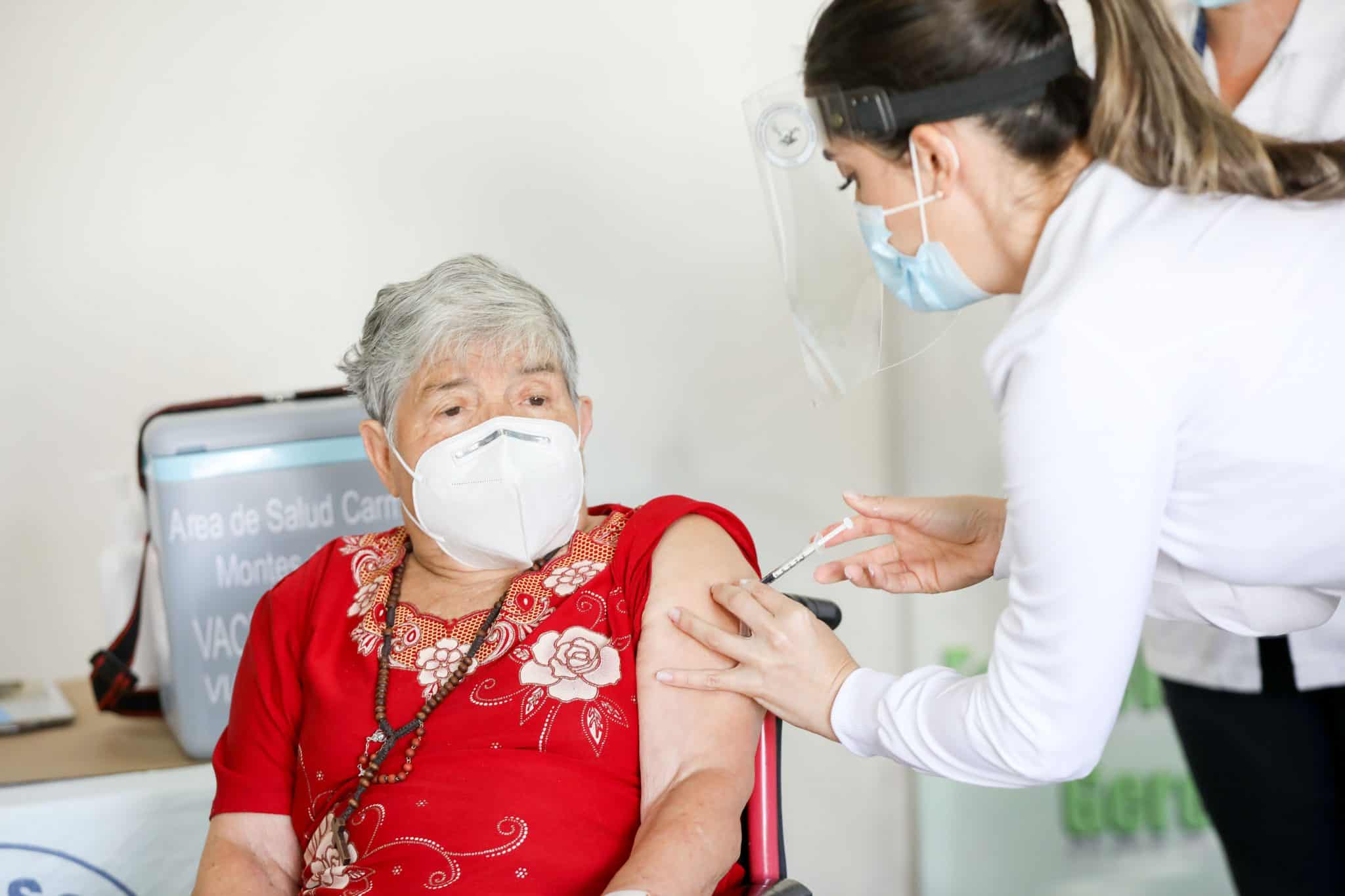The Costa Rican Social Security System (CCSS) reported no adverse events after the country began its coronavirus vaccination campaign last week.
“The elderly residents of Hogar PROPAM and their workers who received the first dose of the vaccine against Covid-19 are in good health,” a press release from the CCSS reads. “The same condition is presented by the staff of the Specialized Center for the Care of Patients with COVID-19 (CEACO).”
According to Costa Rican authorities, mild arm pain has been the most common side effect reported after receiving the first dose of the Pfizer/BioNTech vaccine. Patients will get a second jab of the vaccine 21 days after the first.
Vaccination efforts are continuing this week at CEACO. Monday, about 100 workers at the coronavirus hospital were vaccinated, including doctors, respiratory therapists, nurses, nursing assistants, patient assistants, cleaners, security staff and drivers who are in direct contact with confirmed Covid-19 patients.
“We estimate that the application of the first dose [at CEACO] will last three weeks and the second dose another three weeks,” reported Aguilar Tassara, a doctor and director at the facility.
In the Carmen Montes de Oca health area, vaccinations are being given to residents and workers at area elderly homes.
More vaccines arrive this week
Costa Rica will receive 11,700 more doses of the Pfizer/BioNTech vaccine this week, the CCSS reports.
In January, Costa Rica expects to receive 33,150 doses each week. Amounts for February and beyond remain to-be-determined. The vaccines will be distributed through the country as determined by the CCSS.
The priority for vaccination is as follows:
- Staff and residents at retirement or nursing homes.
- First responders, including health personnel.
- Costa Rica’s older population, defined here as those ages 58 and up.
- People with risk factors, including hypertension, diabetes, heart disease, respiratory illness, kidney disease and obesity, among others.
- Teachers and other staff within the Education Ministry (MEP).
- Imprisoned people and judicial staff.
- Workers for the 911 service.
- Health science students and related technicians in clinical fields.
- People ages 40-57 without any of the aforementioned risk factors but whose work puts them in contact with others. This includes laborers in agriculture, construction, service industries, etc.
President Carlos Alvarado and other high-ranking government authorities will receive the vaccine in accordance to where they fall in the above prioritization list. Minors will not be vaccinated.
The vaccine will not be obligatory, authorities said last week.
Citizens and residents who fall into one of the priority populations should ensure their contact information is current at their local public-health clinic (EBAIS). The vaccine is free.
“It is important that they come on the date and place that their health area communicates,” the CCSS says.
Authorities have not announced if or when a coronavirus vaccine would be available for purchase at private health centers and/or pharmacies.
Costa Rica and Pfizer-BioNTech have an agreement for 3 million doses of the vaccine, enough for 1.5 million people. The Central American country also has a deal with AstraZeneca and is a member of the COVAX facility.
Costa Rica hopes to vaccinate 80% of its adult population by the end of 2021.






